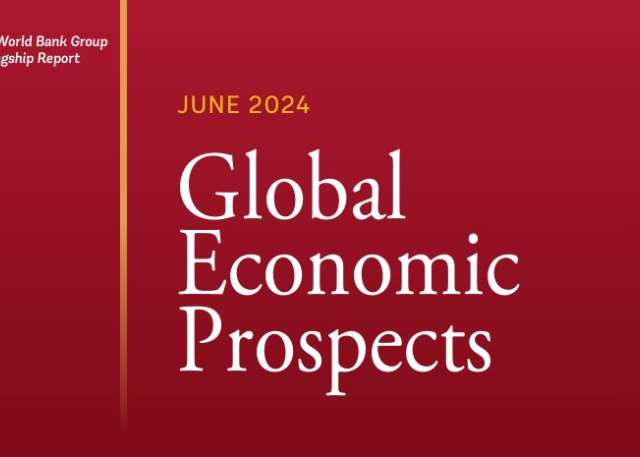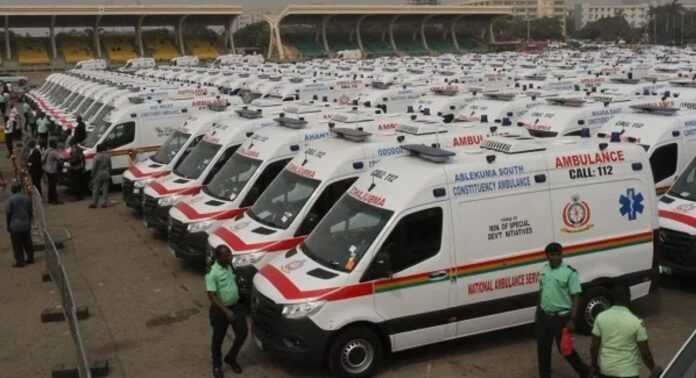According to the World Bank’s Global Economic Prospects report, the global economy is projected to stabilize in 2024, but at a pace that is slower than pre-pandemic levels.
Global growth is expected to hover around 2.6% in 2024 and 2.7% in 2025-26, significantly lower than the 3.1% average in the decade preceding COVID-19.

Developing economies are forecasted to grow at an average rate of 4% over 2024-25, slightly slower than in 2023.
However, low-income economies are expected to experience a growth acceleration to 5% in 2024, despite downgrades in forecasts for three-quarters of these economies since January.
Advanced economies are predicted to maintain a steady growth rate of 1.5% in 2024, rising to 1.7% in 2025.
The World Bank’s Chief Economist, Indermit Gill, noted that while global economic growth appears to be steadying, it remains below pre-2020 levels, with developing economies facing significant challenges, including debt service, trade constraints, and climate events.
The report highlights that one in four developing economies is expected to remain poorer than it was in 2019, with a widening income gap between developing and advanced economies.
Global inflation is projected to moderate, but central banks are likely to remain cautious, keeping interest rates high, which could impact growth in developing economies.
The report features two analytical chapters, one on public investment and its potential to accelerate private investment and promote economic growth, and another on the fiscal challenges faced by small states, which suffer from chronic difficulties and require comprehensive reforms and targeted global policies to achieve sustainable fiscal paths.
The first chapter finds that public investment growth in developing economies has halved since the global financial crisis, but scaling up public investment by 1% of GDP can increase output by up to 1.6% in the medium term.
The second chapter notes that small states face significant fiscal challenges, with two-fifths at high risk of debt distress or already in it, and require comprehensive reforms to address these challenges.
Overall, the report suggests that while global economic growth is stabilizing, it remains fragile, and developing economies face significant challenges that require urgent attention and targeted policies to promote sustainable and inclusive growth.
























































![[FREE FREE MONEY] Predict and Win a Guaranteed GH¢200 From Us EVERY WEEK](https://wordpress.ghanatalksradio.com/wp-content/uploads/2022/02/Predict-and-Win-Final-09-03-2021-218x150.jpg)
![[Predict & Win – 8th/Oct.] WIN A Guaranteed ¢200 From Us This Week](https://wordpress.ghanatalksradio.com/wp-content/uploads/2021/10/maxresdefault-16-218x150.jpg)
![[Predict & Win – 2nd] WIN A Guaranteed ¢200 From Us This Week](https://wordpress.ghanatalksradio.com/wp-content/uploads/2021/09/maxresdefault-50-218x150.jpg)
![[Predict & Win – 25th] WIN A Guaranteed ¢200 From Us This Week](https://wordpress.ghanatalksradio.com/wp-content/uploads/2021/09/maxresdefault-36-218x150.jpg)
![[Predict & Win – 18th] WIN A Guaranteed ¢200 From Us This Week](https://wordpress.ghanatalksradio.com/wp-content/uploads/2021/09/maxresdefault-23-218x150.jpg)








![[National cathedral] See full list of churches that have contributed since 2018](https://wordpress.ghanatalksradio.com/wp-content/uploads/2020/09/Ghana-National-Cathedral-GhanaTalksRadio-100x70.jpg)



